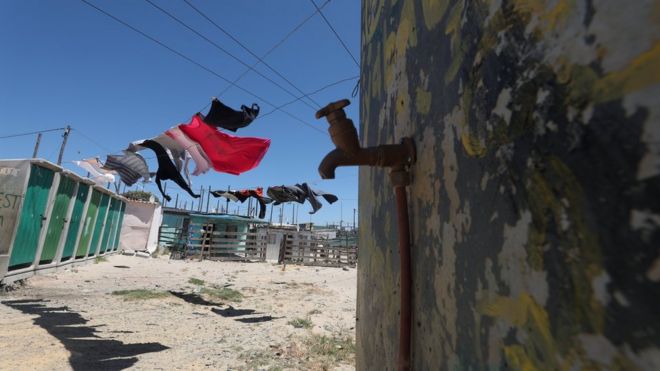Cape Town drought: South African city may avoid 'Day Zero'

Image copyright REUTERS
The city cut daily water use limits first to 87 litres and then 50 in a bid to avert shutting off supplies
Cape Town will not have to turn off water supplies after all if current consumption levels are maintained, the region's governing party has said.
Amid a drought, the city had set a 50-litre daily limit and had told citizens "Day Zero" was approaching when people would have to queue at standpipes.
But water-saving efforts in the South African city have seen the day pushed back from April to 27 August.
Seasonal rains should mean that date is now averted, the city said.
The shortages follow three years of low rainfall.
"Thus, provided we continue our current water savings efforts, Day Zero can be avoided completely this year," the city government said in a statement.
"It is now up to all of us. If we keep on saving, we will not have to queue for water this year."
Mmusi Maimane, leader of the Democratic Alliance which governs both the city and wider Western Cape province, said water consumption had been cut by 60% in two years.
I want to thank the residents of Cape Town, who have responded magnificently. Everyone has played their part to keep the taps open.
Consumption now sits at between 510 and 520 million litres per day – down from almost 1.2 billion litres in February 2015!
The city had resorted to increasingly drastic measures to clamp down on water usage, including "naming and shaming" the 100 addresses using the most water and fining residents who failed to comply with the 50 litre (13 gallon) limit per person.
By comparison, the average UK consumer uses some 150 litres of water per day.
Although the risk that piped water supplies will be shut off this year has receded, politicians and environmentalists warn that the water crisis is there to stay in Cape Town, as year-on-year rainfall levels dwindle.
No comments:
Post a Comment